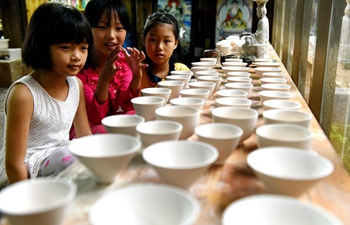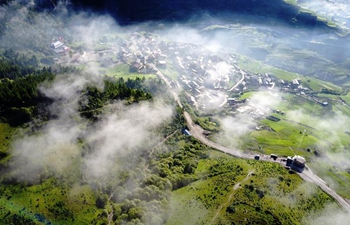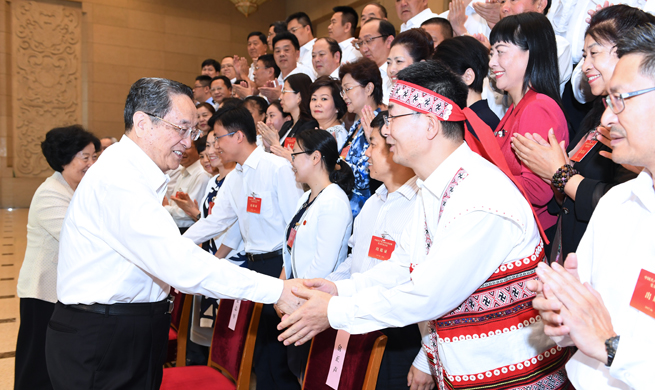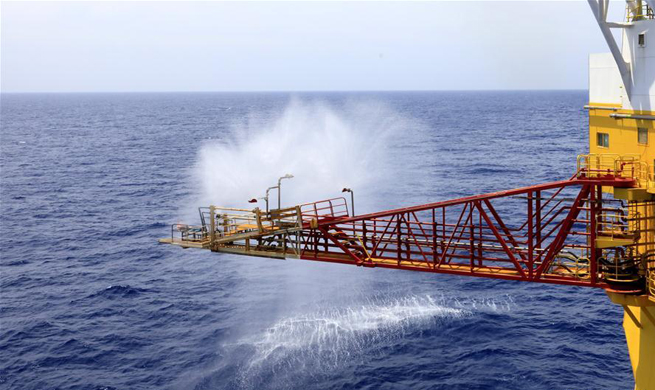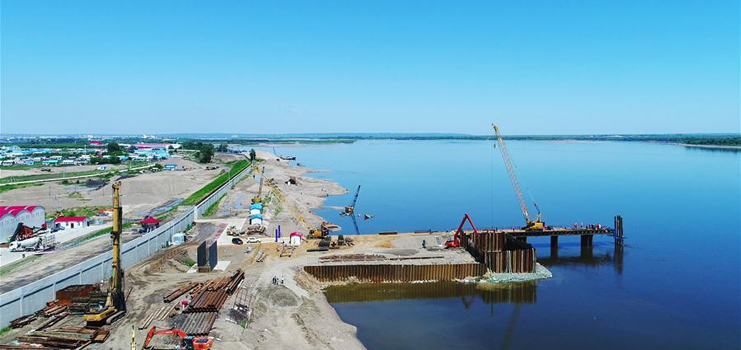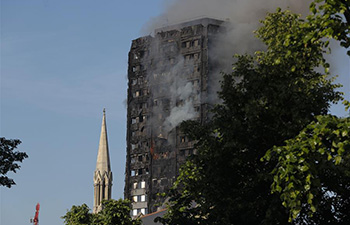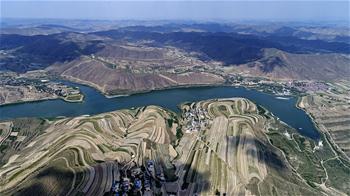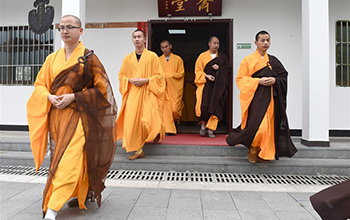by Burak Akinci
ANKARA, June 21 (Xinhua) -- Turkey, the world's largest refugee-hosting country, has announced it a "badge of honor" to provide shelter for over 3 million refugees, but also says it feels strain at the burden.
On the occasion of the World Refugee Day, Turkey has organized a series of meetings across the country to show how it is and will manage the crisis, as refugees in Turkey account for around 45 percent of all Syrian refugees in the region.
"This is not a burden but a badge of honor," Presidential Spokesman Ibrahim Kalin tweeted on Tuesday.
Official figures suggest that Turkey has spent around 25 billion U.S. dollars helping and sheltering refugees since the war broke out in Syria in 2011, which displaced up to 12 million people, around two-thirds of the population.
A report from the UN High Commissioner for Refugees (UNHCR) on displacement said despite the huge focus on Europe's migrant crisis, it is poorer countries that host most of the world's refugees.
What's more, 84 percent of refugees are living in low-and-middle-income countries, the UN refugee agency pointed out, blaming this "huge imbalance" on "the continuing lack of consensus internationally when it comes to refugee hosting."
Turkish government claimed that they "simply have a duty to give shelter to this people fleeing from conflicts and who has lost everything in the war," saying that closing doors to them is not acceptable.
"This is not the scenario that we had anticipated but we are faced to it, so we will do the outmost in order that the people who have taken refuge on our soil live a humane life, in peace," said an official from the government on condition of anonymity.
Turkey's Foreign Minister Mevlut Cavusoglu also called for more support to Turkey in dealing with the refugee issue, adding that "We will continue to help those in need. We are proud of it."
According to Ankara, contributions from the international community in aiding Syrians in Turkey are only about 550 million dollars. The European Union has also promised 3 billion euro (3.3 billion dollars) for Turkey in exchange of a controversial migrant deal preventing refugees to flood its members.
Among the 3 million plus refugee in Turkey, only a lucky fraction, some 250,000 people live in camps installed in several cities across the country, mainly located near the Syrian border.
Others try to survive with government or NGO assistance.
Life is difficult for them despite the fact that they are in a Muslim country as their own, where traditions and practices are not quite far apart.
Ahmad Ramadan, 33, collects waste paper from garbage bins in the residential neighborhood of Yildiz in the capital Ankara.
His job provides income for his family of four, who live in dire conditions in a tent offered by the Ankara municipality.
He understands the difficulty the government of his host country is facing.
"Turkey has been good to me but I know that we are many here, so I have to provide for my family, at least we do not have the war here and we know that a bomb will not explode next to us," said Ramadan.
Tens of thousands of Syrians have blended in the Turkish society and started businesses benefiting from authorizations given by the government.
Turkey also provides free healthcare to them, and allows children to attend schools to create a sustainable and livable environment.
But the road for integration is still long and hard as proven by incidents, sometimes fatal, involving local population and Syrians.
"A conscientious approach is growing but Turkey is still late in this field (integration), because officials from the beginning thought that the displaced people where here only temporary," said Metin Corabatir, a leading Turkish expert from the Research Centre on Asylum and Migration.
Istanbul, Turkey's biggest city with a population of nearly 15 million, is dubbed "little Syria," with the number of Syrians reaching nearly 500,000, according to information from officials of the Turkish Disaster and Emergency Management Authority.
But there are some timid positive signs.
Thousands of Syrians reportedly walked back home from the border before the end of Ramadan, which will be celebrated by a three-day festival called Eid al-Fitr, some saying that they are planning to stay there for good and repatriate later their family members.
"I'm sure that if the conflict ends in Syria, 80 percent of those who are here will return, because it's their homeland regardless of how they are treated in Turkey", said Muhammad Saleh Ali, head of a local Syrian association in Ankara.
"I am not a refugee and I live here for 18 years but my heart is still there and I long to return," he added.





